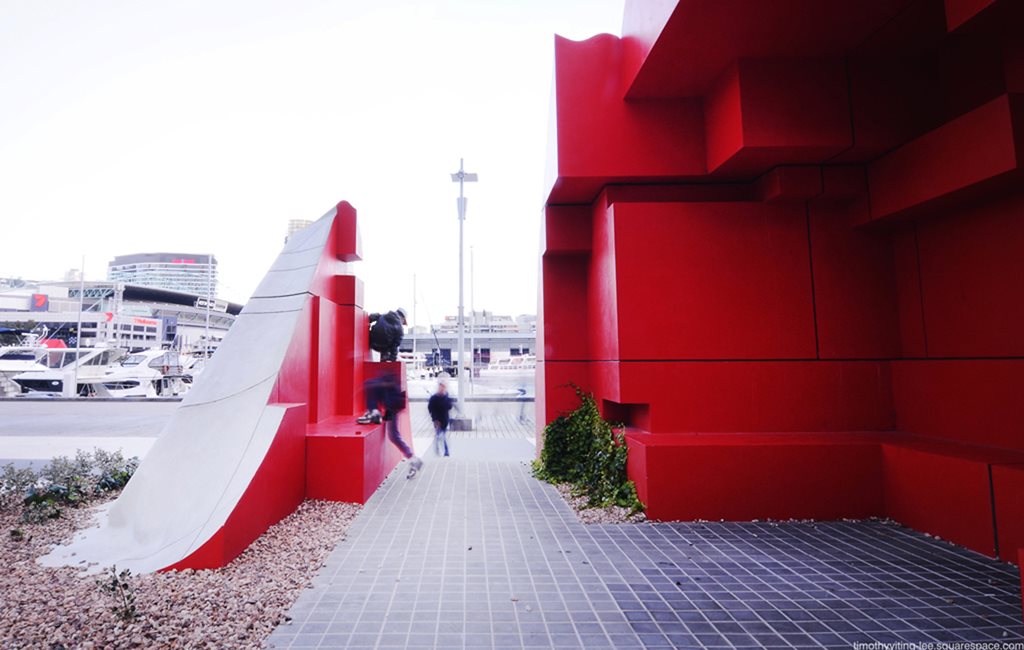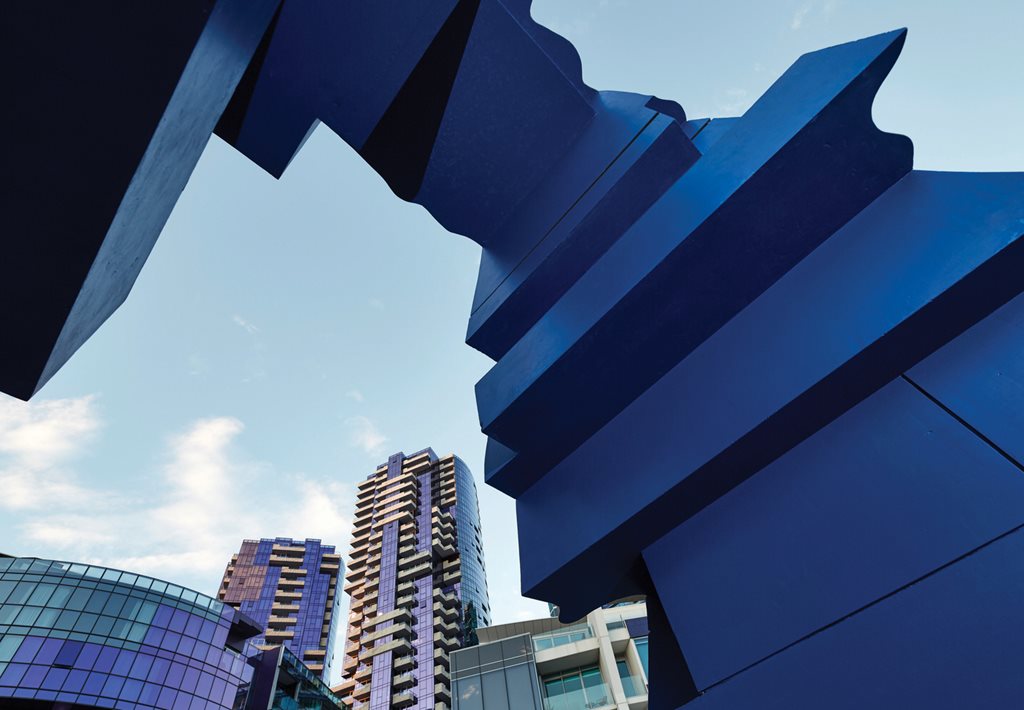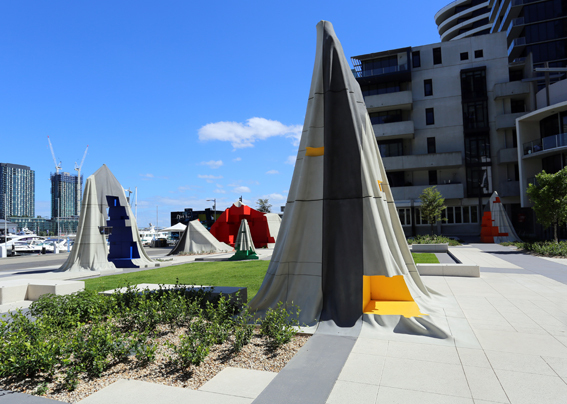Monument Park is not a park with sculptures; it is a series of sculptures that, together, function as a park.
Described by the project team as looking like “funny ghosts” or “Dementors from Harry Potter”, the intention behind erecting these tent-like structures was to address the “negative perceptions” of Melbourne’s Docklands area.

Monument Park is a collaboration between McBride Charles Ryan (MCR) architects, MAB property developers, the landscape architects at Occulus, and Canadian-born artist Callum Morton. Connecting the Docklands precinct from New Quay Promenade to The Quays apartments, the cross-discipline project performs multiple functions: not only does it add artistic texture to the area, it readdresses retail, creates shelter, and provides somewhere for passers-by to sit.


“From the beginning, the idea was to create an artificial topography that would rise and fall across the site, and that this changing topography would create opportunities to open up new worlds above, between, below and through the ground,” says MCR in a design statement.
For the layout of Monument Park, MCR and Occulus chose to focus on the original concept for Melbourne’s Hoddle Grid. They took the subdivisions of this existing site and used them to form a pattern for the terrain of Monument Park, which additionally informed the idea of the ‘concrete rug’ that provides the base of the site.
The sculptures were laid ‘under’ this concrete rug; they appear to emerge from the ground, trailing concrete like a sheet-clad child imitating a ghost. The monuments are all the products of 3D scanning and 3D computer modelling.

“It is important to say that this is not a park with sculptures in it, which some might be tempted to say,” says MCR. “Rather, it’s one work that is a public park; a type of garden; a place to congregate, to sit, to shelter and play in.
“These forms that rise out of the ground and the plants that emerge through it are underneath one [concrete] plane that has been laid across the whole site. And this ground plane is in the end the true subject and unifying element of Monument Park.”

